Whether it is the state of UP or Maharashtra, the politics of renaming appears to have come to stay for some time. Shubhangi Khapre reports.
Shiv Sena’s recent demand, that the Bombay Blue chain of restaurants be renamed Mumbai Blue, brings the spotlight back on the practice of rechristening. Shubhangi Khapre dishes out some home truths about the politics of renaming. On one hand, political parties use it as a tool to beat up passions. On the other, it also helps them sweep under the carpet more pressing public issues
When Mumbai airport was rechristened Chattrapati Shivaji International Airport, the Shiv Sena-BJP alliance’s primary concern was to thwart the Congress party’s plans to name it after India’s first prime minister, Pt Jawaharlal Nehru. The decision to rename Victoria Terminus (VT) after the great Maratha king Chattrapati Shivaji was a strategic decision taken by the Sena-BJP to wipe out all imprints of British Raj.
In the Congress-dominated constituencies of Mumbai, slums named after Indira Gandhi were effortlessly renamed after her son, Rajiv Gandhi under the Slum Rehabilitation Authority schemes (SRA). The entire exercise is neither driven by ideology nor philosophy any longer. The map of Mumbai is dotted with thousands of such meaningless instances where roads, slums, parks and educational institutions get a new name at the drop of hat. Not surprisingly then the long pending cry to change Bombay into Mumbai was inevitable in the saffron regime.
The process of remaining has become politically fashionable. Even the hardcore ideologically driven politicians, who believe in bringing revolt through ideas and mass movement, often buckle under the short-sighted rhetoric of renaming to stay ahead of their rivals and often allow the transformation without raising a hand in protest.
The virus of “renaming” has broken all barriers and is being adopted by all political parties across the country.
Barely 24 hours after Mayawati heralded socio-political change through social engineering of forward and backward castes in the Hindi Heartland, the process of replacing old boards with new names became the most important agenda of the state administration.
Whether it is the backward state of UP or the progressive Maharashtra, the politics of renaming appears to have come to stay for some time.
Not surprisingly, when Mayawati decided to rename a University after Shahu Maharaj — among the most revered social reformers in Maharashtra — state leaders expressed their discomfort and realised it was the first step taken by the Bahujan Samaj Party (BSP) leader to make inroads in the state through such symbolic gestures. The question is whether the politics of renaming has the support of the people? Does it ever translate into power politics? Or has it become a weapon used by the netas to divert attention from public issues?
BJP leader Madhav Bhandari, said, “I have yet to come across any party or individual who may have polled more votes because of renaming an airport or a road. How does it help the people when you rename a road after
Rajiv Gandhi or a chowk after Chhatrapati Shivaji? Apart from sentimental value in some cases, renaming is short-sighted politics. It can never make or break any leader.”
Not withstanding the pragmatic views of some politicians, the fact of matter is that the state government, every year, receives more than 500 proposals seeking sanction and funds for the renaming a certain road or an establishment in their respective districts across state. The names most in demand are that of Dr BR Ambedkar and Rajiv Gandhi.
Even as there is a scramble to find a suitable name to change the old one, there are thousands of noted writers, litterateurs and freedom fighters who have been long forgotten. Or else how does one explain the Right wing, Left wing and the Centre engaged in promotional politics, which revolves around dynasties or are confined to a handful of leaders used as vehicles to climb up the political ladder. When the BJP chose Shyama Prasad Mookherjee or Veer Savarkar, it was to assert its politics over Congress’ Gandhi-Nehru culture, which had captured almost the entire nation.
Republic Party of India (RPI) leader Ramdas Athavale argues, “There is growing demand for Dr BR Ambedkar across the country, because this is the only way dalits and non-dalits too can pay their respects to the mahamanav.”
![submenu-img]() This singer helped BCCI when it had no money to award 1983 World Cup-winning Indian cricket team, raised 20 lakh by...
This singer helped BCCI when it had no money to award 1983 World Cup-winning Indian cricket team, raised 20 lakh by...![submenu-img]() Virat Kohli’s new haircut ahead of RCB vs CSK IPL 2024 showdown sets internet on fire, see here
Virat Kohli’s new haircut ahead of RCB vs CSK IPL 2024 showdown sets internet on fire, see here![submenu-img]() BCCI bans Mumbai Indians skipper Hardik Pandya, slaps INR 30 lakh fine for....
BCCI bans Mumbai Indians skipper Hardik Pandya, slaps INR 30 lakh fine for....![submenu-img]() 'Justice must prevail': Former PM HD Deve Gowda breaks silence in Prajwal Revanna case
'Justice must prevail': Former PM HD Deve Gowda breaks silence in Prajwal Revanna case![submenu-img]() India urges students in Kyrgyzstan to stay indoors amid violent protests in Bishkek
India urges students in Kyrgyzstan to stay indoors amid violent protests in Bishkek![submenu-img]() Meet IIT graduates, three friends who were featured in Forbes 30 Under 30 Asia list, built AI startup, now…
Meet IIT graduates, three friends who were featured in Forbes 30 Under 30 Asia list, built AI startup, now…![submenu-img]() Meet woman who cracked UPSC in fourth attempt to become IAS officer, secured AIR...
Meet woman who cracked UPSC in fourth attempt to become IAS officer, secured AIR...![submenu-img]() Meet IIT JEE 2024 all-India girls topper who scored 100 percentile; her rank is…
Meet IIT JEE 2024 all-India girls topper who scored 100 percentile; her rank is…![submenu-img]() Meet PhD wife of IIT graduate hired at Rs 100 crore salary package, was fired within a year, he is now…
Meet PhD wife of IIT graduate hired at Rs 100 crore salary package, was fired within a year, he is now…![submenu-img]() Meet woman not from IIT, IIM or NIT, cracked UPSC exam in first attempt with AIR...
Meet woman not from IIT, IIM or NIT, cracked UPSC exam in first attempt with AIR...![submenu-img]() DNA Verified: Is CAA an anti-Muslim law? Centre terms news report as 'misleading'
DNA Verified: Is CAA an anti-Muslim law? Centre terms news report as 'misleading'![submenu-img]() DNA Verified: Lok Sabha Elections 2024 to be held on April 19? Know truth behind viral message
DNA Verified: Lok Sabha Elections 2024 to be held on April 19? Know truth behind viral message![submenu-img]() DNA Verified: Modi govt giving students free laptops under 'One Student One Laptop' scheme? Know truth here
DNA Verified: Modi govt giving students free laptops under 'One Student One Laptop' scheme? Know truth here![submenu-img]() DNA Verified: Shah Rukh Khan denies reports of his role in release of India's naval officers from Qatar
DNA Verified: Shah Rukh Khan denies reports of his role in release of India's naval officers from Qatar![submenu-img]() DNA Verified: Is govt providing Rs 1.6 lakh benefit to girls under PM Ladli Laxmi Yojana? Know truth
DNA Verified: Is govt providing Rs 1.6 lakh benefit to girls under PM Ladli Laxmi Yojana? Know truth![submenu-img]() Kiara Advani stuns in Prabal Gurung thigh-high slit gown for her Cannes debut, poses by the French Riviera
Kiara Advani stuns in Prabal Gurung thigh-high slit gown for her Cannes debut, poses by the French Riviera![submenu-img]() Heeramandi star Taha Shah Badussha makes dashing debut at Cannes Film Festival, fans call him ‘international crush’
Heeramandi star Taha Shah Badussha makes dashing debut at Cannes Film Festival, fans call him ‘international crush’![submenu-img]() Streaming This Week: Madgaon Express, Zara Hatke Zara Bachke, Bridgerton season 3, latest OTT releases to binge-watch
Streaming This Week: Madgaon Express, Zara Hatke Zara Bachke, Bridgerton season 3, latest OTT releases to binge-watch![submenu-img]() Sunanda Sharma exudes royalty as she debuts at Cannes Film Festival in anarkali, calls it ‘Punjabi community's victory’
Sunanda Sharma exudes royalty as she debuts at Cannes Film Festival in anarkali, calls it ‘Punjabi community's victory’![submenu-img]() Aishwarya Rai walks Cannes red carpet in bizarre gown made of confetti, fans say 'is this the Met Gala'
Aishwarya Rai walks Cannes red carpet in bizarre gown made of confetti, fans say 'is this the Met Gala'![submenu-img]() Haryana Political Crisis: Will 3 independent MLAs support withdrawal impact the present Nayab Saini led-BJP government?
Haryana Political Crisis: Will 3 independent MLAs support withdrawal impact the present Nayab Saini led-BJP government?![submenu-img]() DNA Explainer: Why Harvey Weinstein's rape conviction was overturned, will beleaguered Hollywood mogul get out of jail?
DNA Explainer: Why Harvey Weinstein's rape conviction was overturned, will beleaguered Hollywood mogul get out of jail?![submenu-img]() What is inheritance tax?
What is inheritance tax?![submenu-img]() DNA Explainer: What is cloud seeding which is blamed for wreaking havoc in Dubai?
DNA Explainer: What is cloud seeding which is blamed for wreaking havoc in Dubai?![submenu-img]() DNA Explainer: What is Israel's Arrow-3 defence system used to intercept Iran's missile attack?
DNA Explainer: What is Israel's Arrow-3 defence system used to intercept Iran's missile attack?![submenu-img]() This singer helped BCCI when it had no money to award 1983 World Cup-winning Indian cricket team, raised 20 lakh by...
This singer helped BCCI when it had no money to award 1983 World Cup-winning Indian cricket team, raised 20 lakh by...![submenu-img]() This film had 3 superstars, was unofficial remake of Hollywood classic, was box office flop, later became hit on...
This film had 3 superstars, was unofficial remake of Hollywood classic, was box office flop, later became hit on...![submenu-img]() Meet Nancy Tyagi, Indian influencer who wore self-stitched gown weighing over 20 kg to Cannes red carpet
Meet Nancy Tyagi, Indian influencer who wore self-stitched gown weighing over 20 kg to Cannes red carpet![submenu-img]() Telugu actor Chandrakanth found dead days after rumoured girlfriend Pavithra Jayaram's death in car accident
Telugu actor Chandrakanth found dead days after rumoured girlfriend Pavithra Jayaram's death in car accident![submenu-img]() Meet superstar who faced casting couch at young age, worked in B-grade films, was once highest-paid actress, now..
Meet superstar who faced casting couch at young age, worked in B-grade films, was once highest-paid actress, now..![submenu-img]() Viral video: Flood-rescued dog comforts stranded pooch with heartfelt hug, internet hearts it
Viral video: Flood-rescued dog comforts stranded pooch with heartfelt hug, internet hearts it![submenu-img]() Dubai ruler captured walking hand-in-hand with grandson in viral video, internet can't help but go aww
Dubai ruler captured walking hand-in-hand with grandson in viral video, internet can't help but go aww![submenu-img]() IPL 2024: Virat Kohli drops massive hint on MS Dhoni’s retirement plan ahead of RCB vs CSK clash
IPL 2024: Virat Kohli drops massive hint on MS Dhoni’s retirement plan ahead of RCB vs CSK clash![submenu-img]() Do you know which God Parsis worship? Find out here
Do you know which God Parsis worship? Find out here![submenu-img]() This white marble structure in Agra, competing with Taj Mahal, took 104 years to complete
This white marble structure in Agra, competing with Taj Mahal, took 104 years to complete
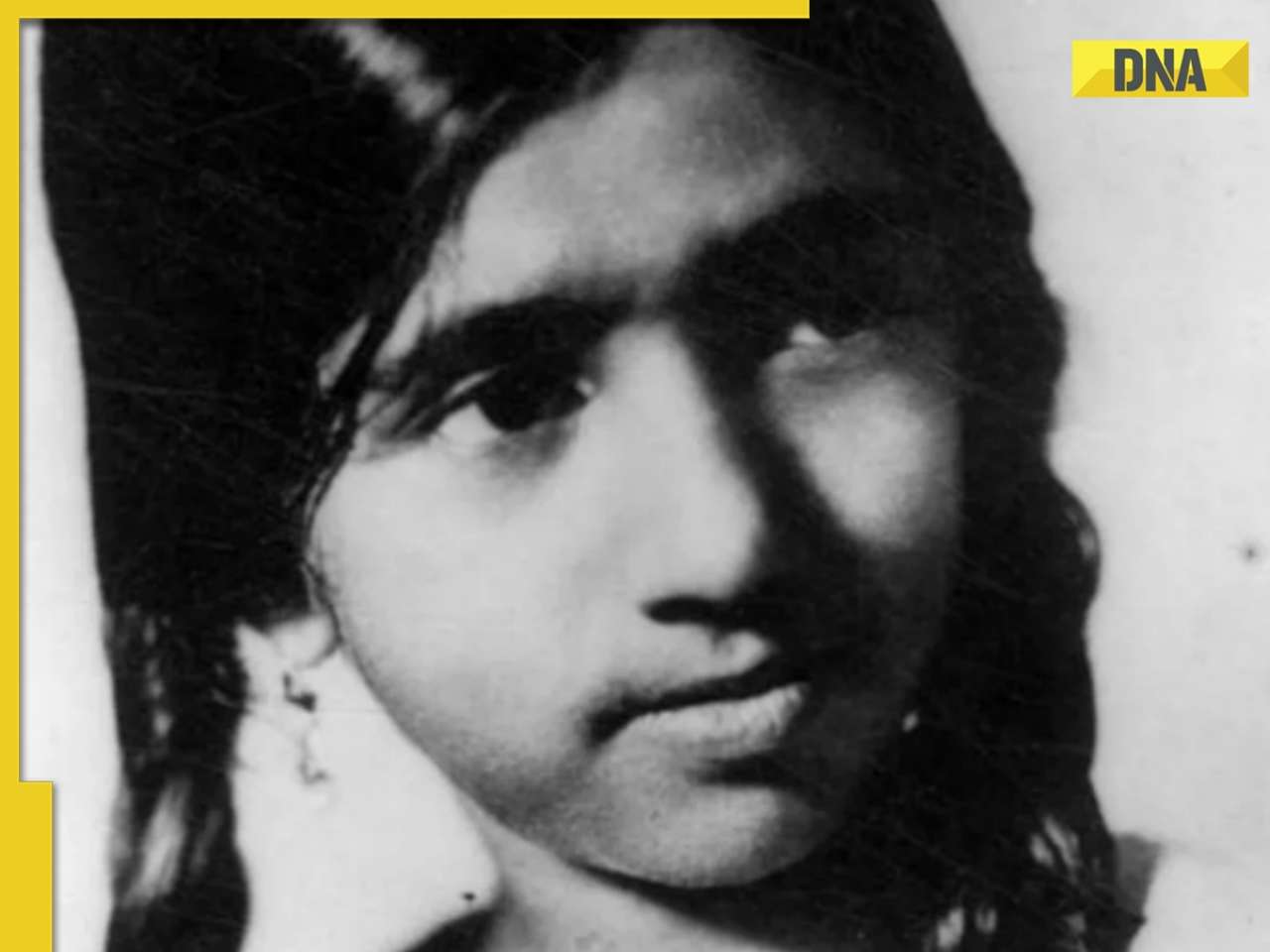

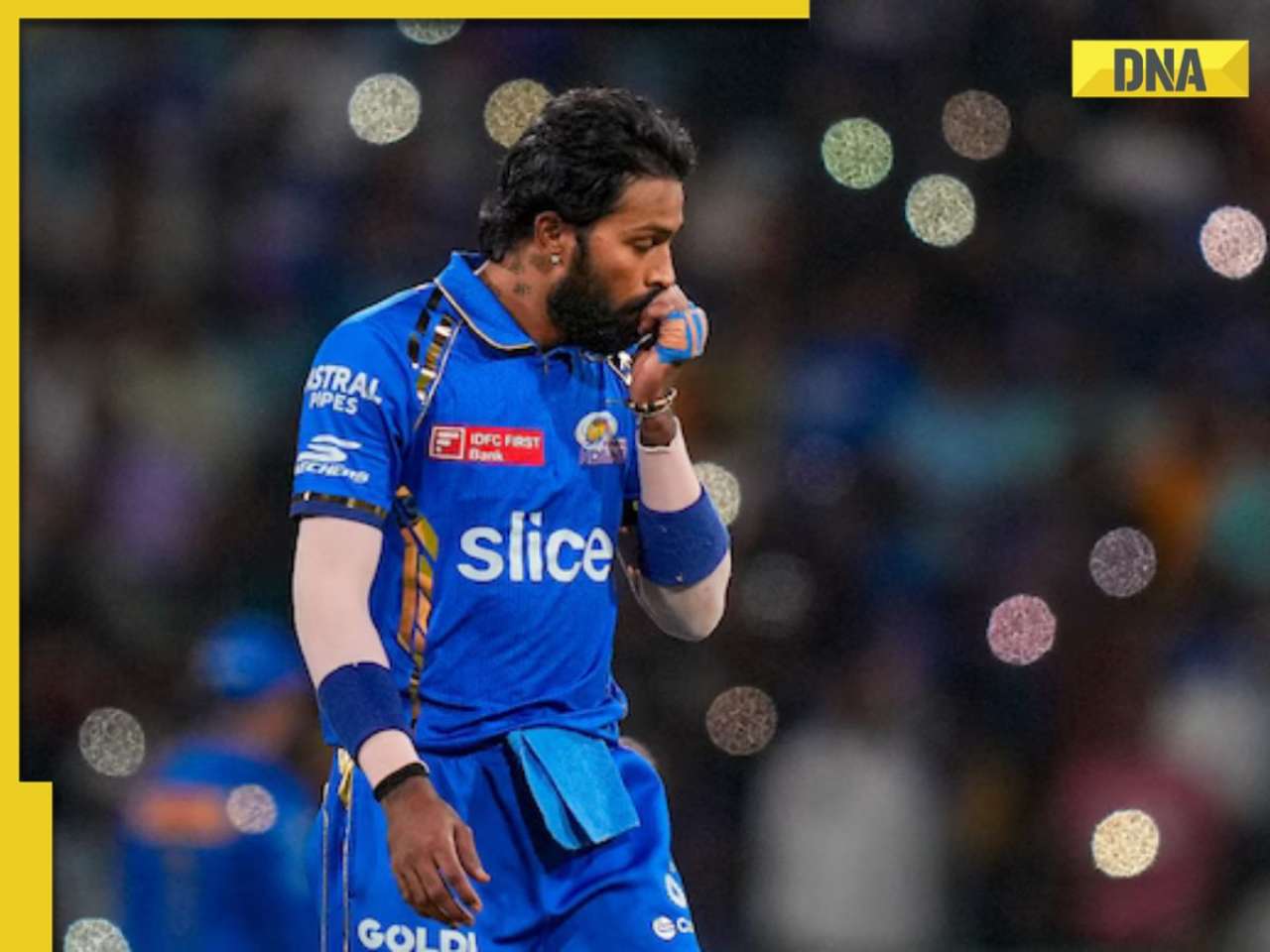
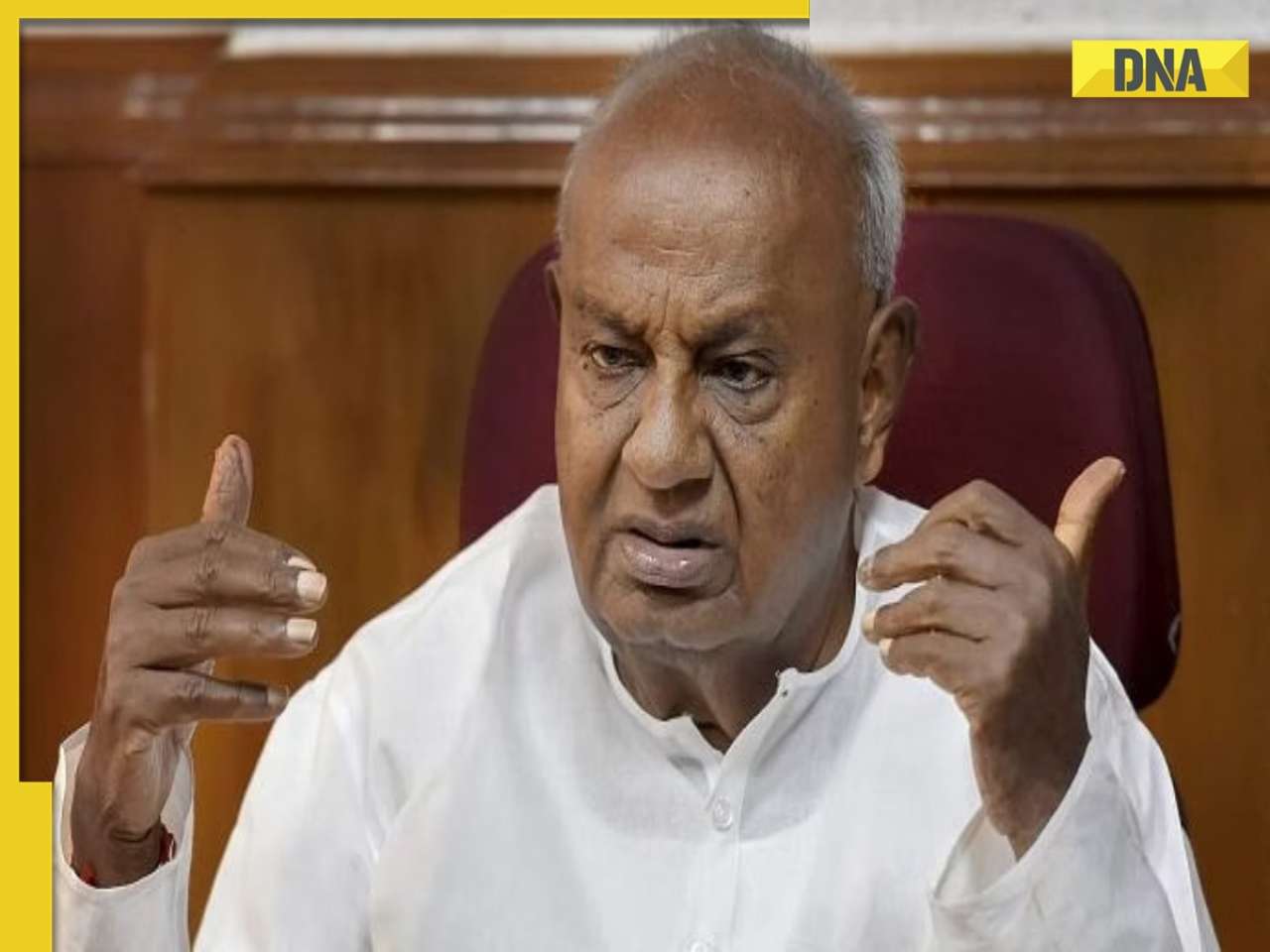




























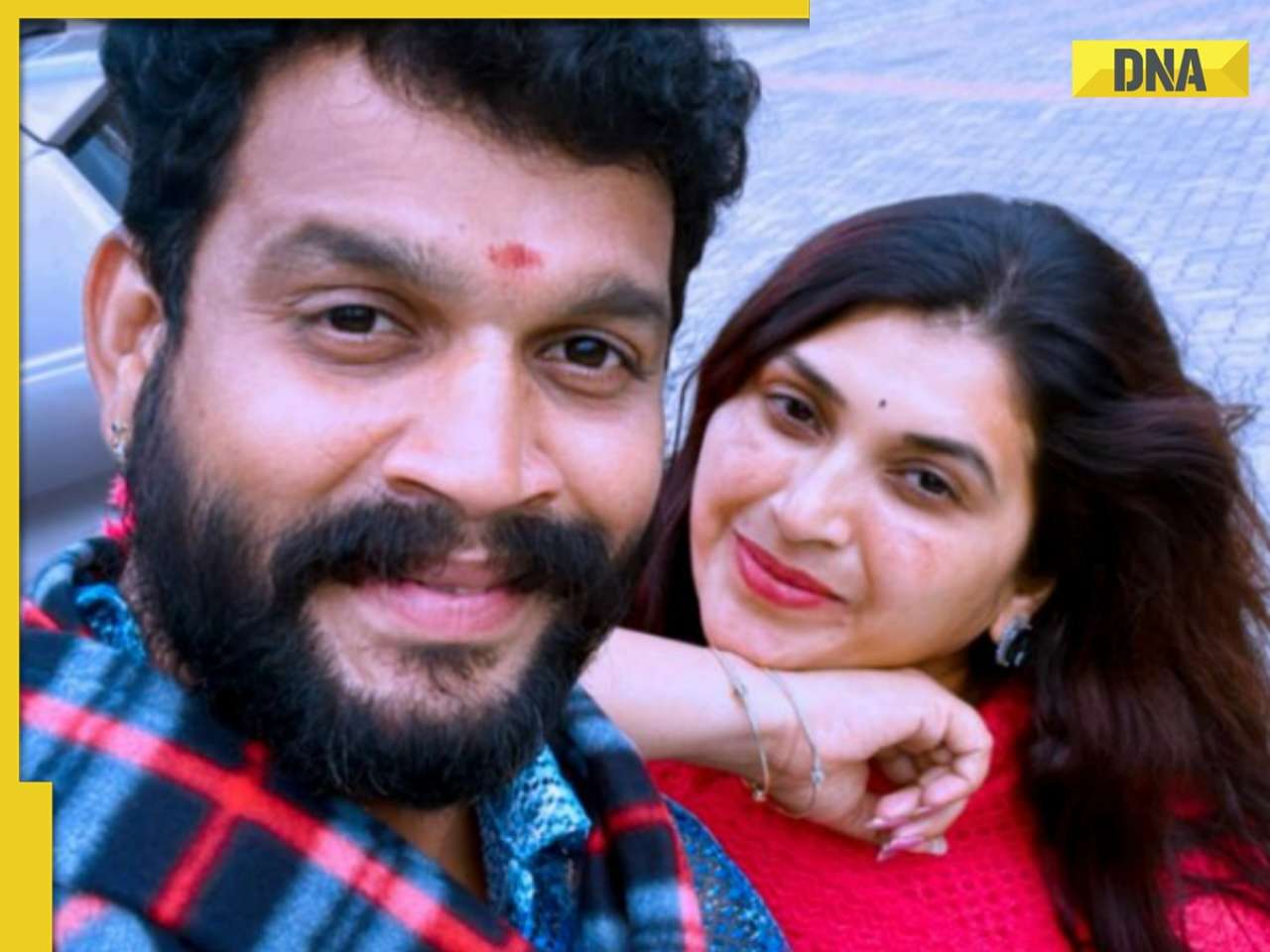



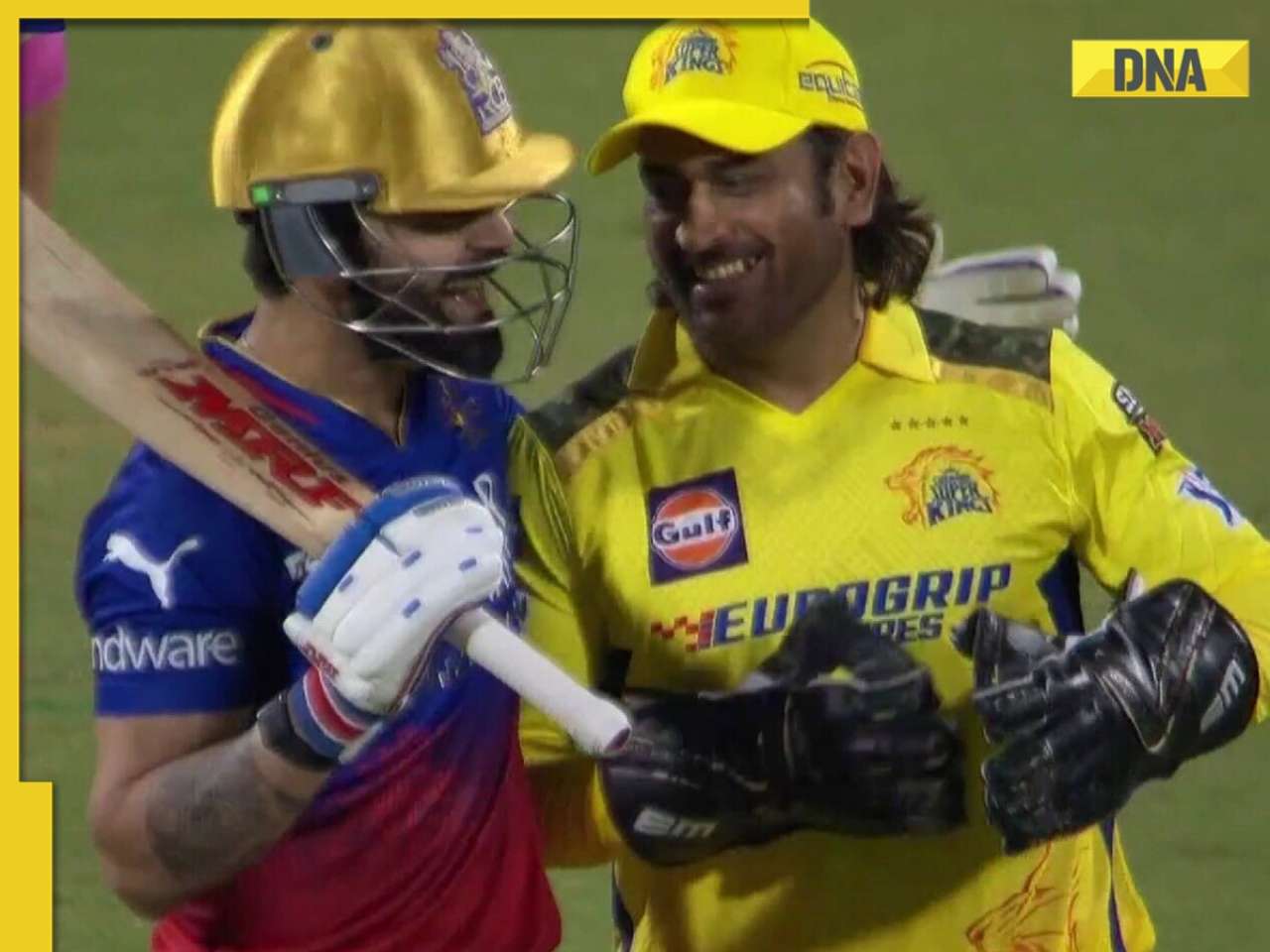





















)
)
)
)
)
)